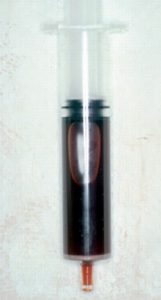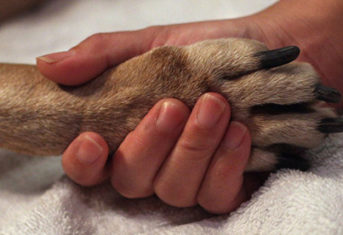Immune Mediated Hemolytic Anemia: What You Need to Know

Immune Mediated Hemolytic Anemia: What You Need to Know
I recently wrote about the concept of immune disease – those disorders where the immune system goes haywire and attacks normal cells in the body. Immune mediated hemolytic anemia, better known by its acronym IMHA, is one of these types of diseases. It is most common in dogs, but occasionally we see IMHA in cats.
Defining IMHA

Let’s break this complicated term into its component parts to help explain the disease process. I defined immune mediated in the previous blog, but in the context of IMHA, the immune system targets red blood cells, resulting in their destruction at a rate faster than the body can replace them. Anemia is simply a lower than normal number of red blood cells which, in IMHA, occurs because of rapid destruction of healthy red blood cells. Red blood cells can be thought of like a little teeny bag containing hemoglobin, the red oxygen-carrying protein. Hemolysis is the rupture of the membrane holding the hemoglobin inside the red blood cell. The red hemoglobin leaks out of the ruptured red blood cell and into the bloodstream and urine. The sample in the photograph is a urine sample from a dog with IMHA. It is red because of the release of hemoglobin into the bloodstream and excretion in the urine.
Recognizing IMHA
As a pet owner, you might recognize lethargy and weakness because your pet does not have enough blood cells to carry adequate oxygen throughout their body. You may also see discolored urine and feces. If you look carefully, your pet’s gums will be pale compared to their normal pink color. But sometimes it takes a battery of tests to the lab to determine that IMHA is the diagnosis.
Causes of Hemolytic Anemia
IMHA is not the only cause of hemolytic anemia. Certain dogs have a genetic defect that makes their red blood cells weak and prone to rupture. For some unexplainable reason, dogs, especially puppies like to eat coins. Pennies contain zinc, which damages red blood cells and causes hemolysis. Blood parasites, transmitted by ectoparasites, are another cause of hemolysis. Occasionally hemolysis is the result of an undiagnosed cancer. With this lengthy list of causes, it is no surprise your pet will need a battery of tests to determine a diagnosis of IMHA.
Treatment Can Be Tough Going
Treatment of IMHA involves suppressing the immune system with drugs like prednisone and azathioprine. When anemia is severe enough, blood transfusion is required. Because dogs with IMHA are critically ill, they are most often hospitalized for several days in AMC’s intensive care unit where their condition can be monitored minute by minute. The first two weeks after a diagnosis of IMHA are the most perilous. But if a dog makes it through the first two weeks, they are likely to live for many more months with ongoing therapy.
In a future blog, I will tackle another hematology disorder, immune mediated thrombocytopenia.

































